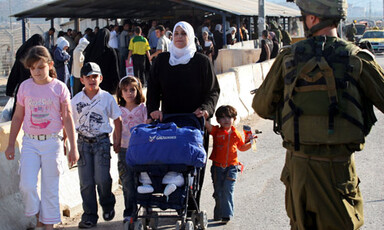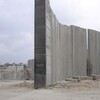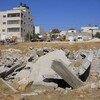
Ali Abunimah speaks about "One Country" at the Palestine Center
28 November 2006
According to Ali Abunimah, author of the recently released book One Country, the two-state solution to the Palestinian-Israeli conflict has proven to be the least pragmatic and the least workable of all options. In his book, Abunimah proposes an alternative solution, one state shared by two peoples. During a 17 November 2006 Palestine Center briefing, he explains how he reached that conclusion and why his proposal for a one state is best for both people for geographical, economical and security reasons. He also discusses the experiences and lessons to be learned from South Africa and that in order to achieve peace in the region a unifying vision and justice for the Palestinians is needed. Read more about Ali Abunimah speaks about "One Country" at the Palestine Center








